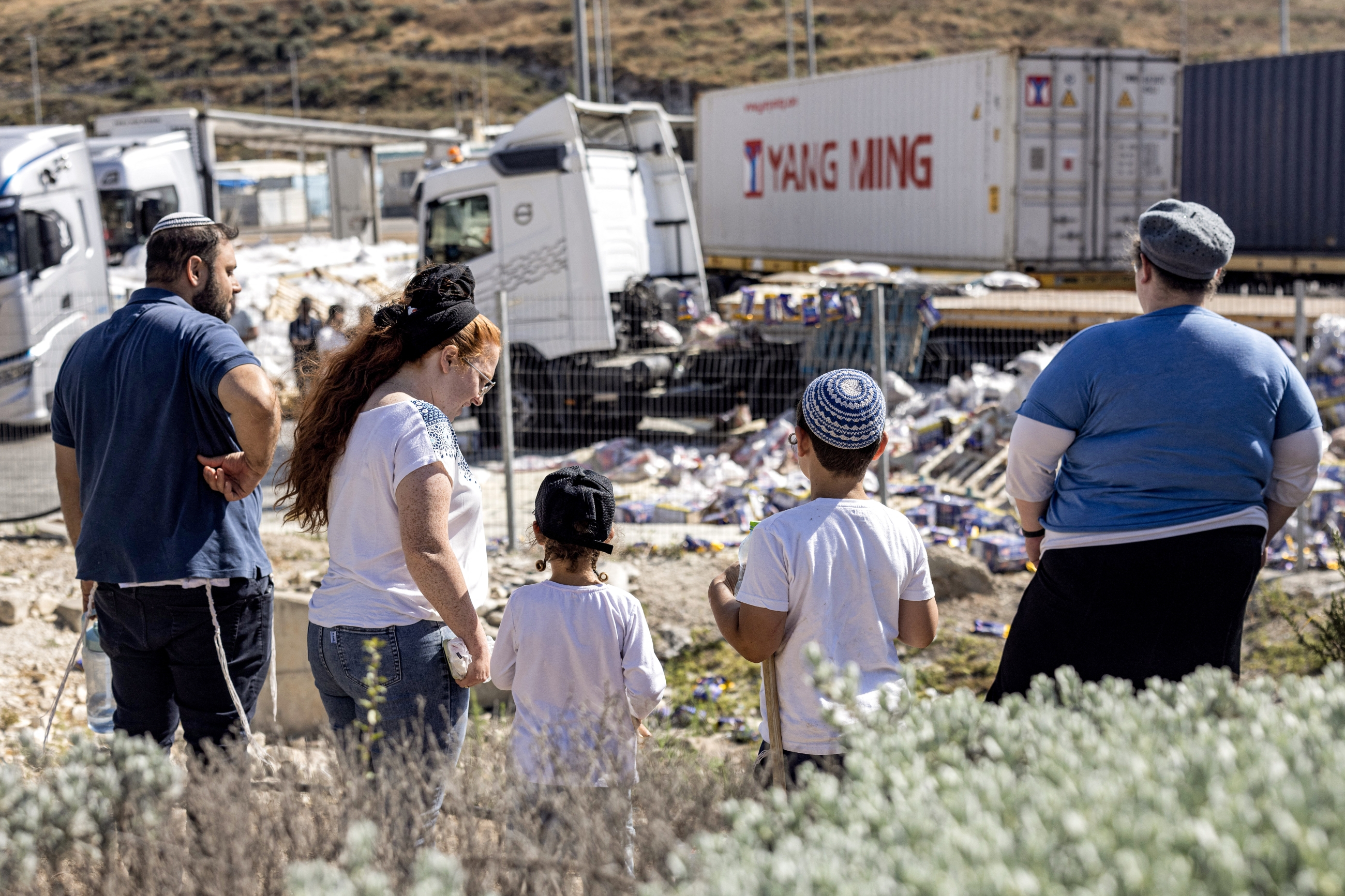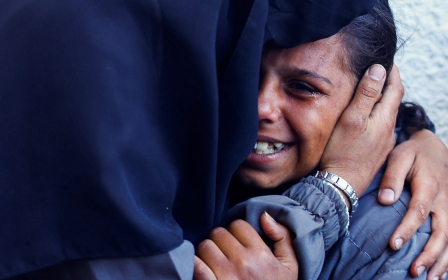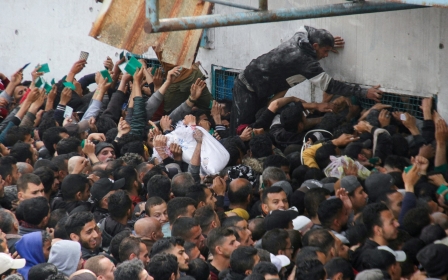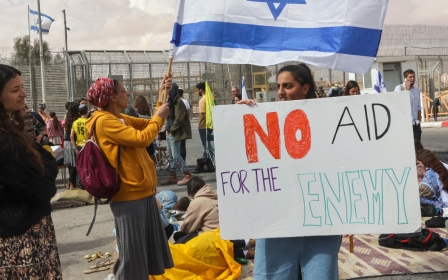Israeli settlers attack Gaza aid convoys sparking outrage

Israeli settlers have sparked outrage after they were filmed attacking several humanitarian aid convoys passing through the occupied West Bank to the war-ravaged and besieged Gaza Strip.
Videos shared online on Monday showed demonstrators throwing food packages onto the road, stomping on boxes and ripping open bags of grain, despite Gaza facing severe levels of acute food insecurity and famine.
Other videos shared on social media showed them attacking aid convoys and setting trucks on fire.
The "send in the national guard" against kids protesting genocide on college campuses crowd seem to be eerily silent on this destruction of property deliberately aimed at starving people. https://t.co/rDGtZNOnPf
— Yousef Munayyer (@YousefMunayyer) May 13, 2024
"These people know millions of Palestinians are starving," posted one user on X, formerly Twitter. "This is a murderous, frankly genocidal, display of cruelty."
New MEE newsletter: Jerusalem Dispatch
Sign up to get the latest insights and analysis on Israel-Palestine, alongside Turkey Unpacked and other MEE newsletters
Another user posted: "Children are dying of hunger, 140,000 children at risk of acute malnutrition."
The trucks, which were attacked at the Tarqumiya checkpoint in Hebron, came from Jordan and were headed towards the besieged Gaza Strip, where the entire population - 2.2m people - are experiencing catastrophic food insecurity and in places, "full-blown famine".
Several Israeli media sites reported that a group called Tzav 9 was responsible for the attack, describing them as a right-wing movement looking to halt humanitarian aid transfers into Gaza until the Israeli captives taken to the strip during the Hamas-led 7 October attacks, are released. At least four people were detained.
Several social media users underlined that the actions of the settlers could not be separated from the government, as security officials were nearby during the incidents.
"When you see Israeli settlers destroying aid meant for Gaza, remember it's in secured zones with the Israeli army standing by,” one user wrote.
"Whether it’s defunding Unrwa, blocking aid, flour massacres, murdering aid workers, it's state terrorism."
💥Protesters block trucks carrying humanitarian aid into Gaza at the Tarqumya crossing, vandalizing & pillaging their contents. No mounted police. No batons. No water cannon. Security personnel were present and declined to intervene.
— Noga Tarnopolsky נגה טרנופולסקי نوغا ترنوبولسكي (@NTarnopolsky) May 13, 2024
(Neta Hamami Tabib) pic.twitter.com/Fj5quuLJR7
This was echoed by leading Israeli human rights organisation B'tselem, which said that the attacks took place for hours in front of Israeli soldiers who did not intervene.
"This flies in the face of the @CIJ_ICJ [International Court of Justice], that issued provisional measures to force Israel to enable humanitarian assistance," the organisation said.
US National Security Advisor Jake Sullivan also addressed the widespread attacks, describing it as "looting".
"It is a total outrage," he said in a press briefing on Monday.
In recent weeks, far-right Israeli groups have taken extreme measures to block aid from entering Gaza, including laying down stones on the roads and organising sit-ins, in addition to attacks on the humanitarian convoys.
Starving innocent civilians for no reason at all is so cartoonishly evil. https://t.co/TcI4Ya0Rxc
— emeh 🇵🇸🇪🇪 (@emehlan) May 14, 2024
The World Food Programme confirmed last week that the "full-blown famine" in the north of Gaza has spread to the south. Doctors in Gaza have also warned of the increase of medical complications and infections as a direct result of malnutrition.
Last week, the Israeli military closed the entry point for aid via Egypt, saying it has taken “operational control” of the Palestinian side of the Rafah crossing. The Israeli flag was raised on flag poles at the crossing, and the Palestinian flag pulled to the ground.
Palestinian officials at the crossing have said that passenger entries and aid deliveries have since stopped due to the Israeli ground invasion of the area.
The humanitarian situation has further deteriorated in the south and comes as Israel warns of a full-scale ground invasion into Rafah, where nearly 1.5 million displaced Palestinians have fled to during the ongoing war.
Over 450,000 have already left the previously designated safe zone.
Middle East Eye delivers independent and unrivalled coverage and analysis of the Middle East, North Africa and beyond. To learn more about republishing this content and the associated fees, please fill out this form. More about MEE can be found here.




